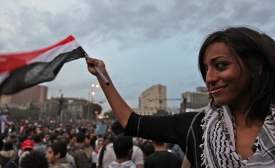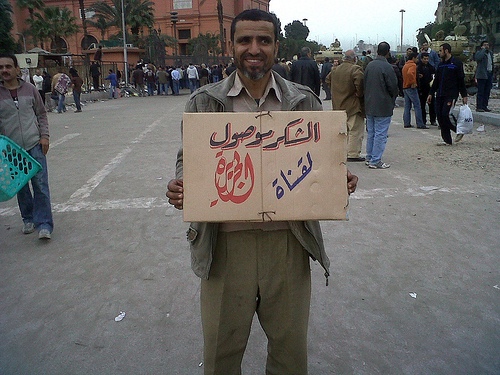arab spring
The study also revealed that Arab media was helping to define the issue for Westerners and was expected to be more open and free. It also highlighted that people in the West view Arabs more favourably and ascribed recent activism to familiar aspirations.
DOHA --- My conversation with two North African friends ranged widely, from the role of satellite television in the Arab world to the prospects for electoral reform in the region. Then we came to how other nations would deal with the new dynamics of Arab politics. One of my friends said, “In the past, diplomacy has been with the leaders, but now it must be with the people.”

They should appreciate the fact that shutting out those you disagree with is not sustainable.
DOHA --- In past sessions of the Al Jazeera Forum, held each year in the network’s Qatar hometown, reform in the Arab world was discussed with an air of resignation: “Someday…maybe.”
The Middle East is once again on fire, not because of American warfare, but due to apparently genuine movements aiming to get rid of old rulers and obsolete political systems. Tunisia, Egypt, Libya, Bahrain, and Yemen have all either passed the threshold of revolution or are on the verge. The dominos have fallen and it would not be imprudent to call it a day for rulers in other Arab countries like Saudi Arabia, United Arab Emirates, or Jordan.

First, let’s be clear that this was the Egyptian Revolution, not the “Facebook Revolution” or the “Twitter Revolution.” Events of the past few weeks belong wholly to spirit of the Egyptian people, not technology. And although it was built on democratic aspirations, this was not a revolution that drew any inspiration from the United States.
WASHINGTON -- From events of the past three weeks a number of lessons can be drawn, some old and some new:
First, the phrase "the Arab street" has been redefined by Tahrir Square. We don’t need acute listening agents or polling to see what the Arab world wants.
Over the last century or so, Israelis have worked to make Israel a part of the Middle East. Israeli sabras (native born Israelis) with their argumentative attitudes; take no prisoners mentality; love for hummus, falafel and “Israeli” salad; tan skin; the yalla (let’s go) and no-translation needed ‘tseh (tongue hiss) live up to the Middle Eastern stereotypes and fit in with regional commonalities. If a tourist was dropped off in a nightclub or beach in Beirut or Tel Aviv, the only notable difference between the patrons would be the spoken language.







